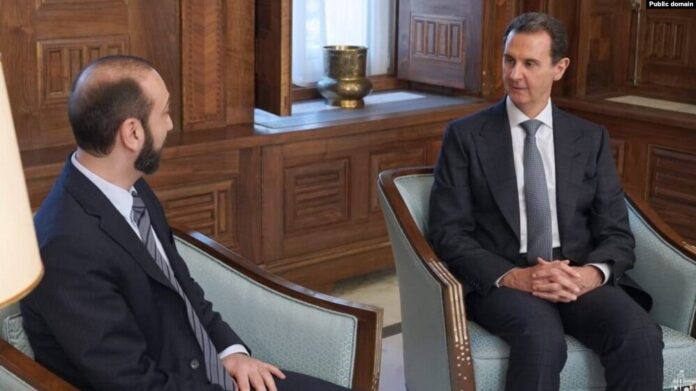By Nane Sahakian
DAMASCUS (Azatutyun) — Foreign Minister Ararat Mirzoyan met with Syrian President Bashar al-Assad in Damascus on Thursday, February 23, as Armenia delivered a third batch of humanitarian aid to Syrian victims of this month’s devastating earthquake in Syria and Turkey.
The Armenian Foreign Ministry reported that Mirzoyan discussed with Assad Syrian-Armenian relations, “regional and international security” as well as bilateral “cooperation on international platforms.” He held a separate meeting with Syrian Foreign Minister Fayssal Mikdad.
According to the official Syrian news agency SANA, Assad praised his country’s “historical” ties with Armenia and its worldwide Diaspora. He also thanked the Armenian government for sending a search-and-rescue team and relief to the northern Syrian city of Aleppo hit hard by the February 6 earthquake.
Mirzoyan flew to Damascus on board a transport plane that carried 32 tons of food and medicine for Aleppo residents affected by the disaster. He toured the war-ravaged city and met with the Armenian rescuers still working there later in the day.
The magnitude 7.8 earthquake killed at least 1,400 people in Syria’s government-controlled areas. The victims included several Syrian Armenians from Aleppo.








